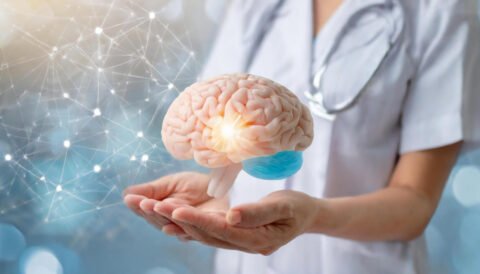Understanding the progression of dementia is essential for caregivers, family members, and those concerned about their cognitive and brain health. Dementia, a collective term for cognitive decline severe enough to interfere with daily life, progresses through various stages, each with distinct symptoms and care needs. This comprehensive guide will explore these stages in depth, discuss when to seek medical help, and provide essential care tips for managing this challenging condition.
Exploring Dementia progression
Recognizing the progression of dementia is crucial for providing appropriate care and support. Each stage of dementia presents unique challenges that require specific strategies and interventions. This understanding not only aids in planning and management but also helps in setting realistic expectations for the future.
Understanding the speed of Dementia progression
Dementia progresses at different rates depending on the type, the individual’s overall health, and their environment. Factors influencing the speed of progression include:
- Type of Dementia: Alzheimer’s disease progresses differently compared to vascular dementia or Lewy body dementia.
- Genetic Factors: Genetic predispositions can accelerate or decelerate progression.
- Health and Lifestyle: Coexisting medical conditions, diet, and level of physical activity also impact how quickly symptoms worsen.
Signs of Dementia progression
Progression signs vary but typically include:
- Memory Loss: Worsening ability to recall recent events and important details.
- Cognitive Decline: Deterioration in reasoning, focusing, and problem-solving abilities, often reflecting an increase in cognitive age.
- Behavioral Changes: Increases in irritability, depression, or anxiety.
- Physical Symptoms: Decline in physical abilities and increased frailty.
- It’s crucial to seek medical advice when these signs become apparent to manage the condition effectively.
Unveiling the Stages of Alzheimer’s
Alzheimer’s disease is classified into several stages, each characterized by specific cognitive and functional losses:
- Preclinical Alzheimer’s: No symptoms but changes are happening in the brain.
- Mild (Early-stage): Forgetfulness, slight confusion, and changes in social behaviors.
- Moderate (Middle-stage): Greater memory loss, confusion, difficulty recognizing close contacts, substantial changes in sleep patterns, and possibly hallucinations.
- Severe (Late-stage): Loss of ability to communicate, reliant on others for care, and near-total memory loss.
- Understanding these stages helps caregivers adjust care and expectations as the disease progresses.
Duration of each stage of Dementia
The duration of dementia stages can vary:
- Early-stage: Lasts 2-4 years as mild symptoms gradually emerge.
- Middle-stage: Can last considerably longer, from 2 to 10 years, as symptoms intensify.
- Late-stage: Typically lasts 1-3 years, characterised by a significant decline in physical and cognitive functions.
- Factors such as treatment efficacy and the individual’s overall health significantly influence these durations.
Differentiating the stages of Dementia
Dementia stages generally include early, moderate, and severe phases, characterised by:
- Early Stage: Difficulties with complex tasks and subtle memory gaps.
- Moderate Stage: Increased confusion, memory loss noticeable to others, significant assistance required.
- Severe Stage: Full dependency for personal care, profound memory loss, minimal to no communication abilities.
- Identifying the stage is crucial for implementing the appropriate level of care and interventions.
Stage characterised by increased sleep
Increased sleep often occurs in the severe stage of dementia. Possible reasons include:
- Brain Changes: Neurological decline can disrupt wake-sleep cycles.
- Reduced Physical Activity: Less daytime activity can lead to increased restlessness or need for sleep.
- Medication Side Effects: Treatments for dementia-related behaviors may induce drowsiness.
- Understanding these factors can help manage sleep issues effectively.
Navigating the 7 stages of Lewy Body Dementia
Lewy body dementia, known for its rapid fluctuations in cognitive ability, also follows a progression:
- Mild Changes: Subtle memory loss and mood changes.
- Moderate Changes: Pronounced memory deficits, visual hallucinations, and movement disorders.
- Intermediate Stages: Increased confusion, physical symptoms intensify, fluctuating alertness.
- Advanced Stages: Severe cognitive and physical decline, significant assistance required.
- Late Stages: Near-total dependence, minimal awareness of environment.
- Each stage requires specific strategies to manage symptoms like hallucinations and movement challenges effectively.
Alzheimer’s Disease in older adults: Stage progression
In older adults, Alzheimer’s disease progression might be initially dismissed as typical age-related changes. However, distinguishing early Alzheimer’s from normal aging is crucial for early intervention, which can significantly improve quality of life.
Early signs and stages of Alzheimer’s Disease
Early detection is key. Signs to watch for include:
Memory Trouble: Especially forgetting recently learned information.
Problem Solving Difficulties: Challenges in planning or solving problems.
Misplacing Things: Losing items and being unable to retrace steps to find them.
Recognizing these signs can lead to earlier diagnosis and treatment options.
Understanding sundowning in Dementia
Sundowning involves increased confusion and agitation during the late afternoon and evening. Managing this condition involves:
- Light Exposure: Maximizing daylight exposure can help regulate sleep patterns.
- Evening Routine: Establishing a calming evening routine can reduce agitation.
- Environment: Keeping the environment calm and quiet during the evening can also be beneficial.
- Speed of Progression in Early Onset Alzheimer’s
- Early-onset Alzheimer’s tends to progress more rapidly than late-onset. This faster progression can be particularly challenging for younger individuals who may still be working or have young families.
Longevity and prognosis in Dementia
Factors influencing longevity include:
- Type of Dementia: Some types progress faster than others.
- Age at Diagnosis: Younger individuals may progress differently.
- Health and Medical Care: Overall health and quality of care can extend life expectancy.
- Sleep Patterns in Late-Stage Dementia
Management of sleep issues in late-stage dementia includes:
- Sleep Hygiene: Keeping a strict bedtime routine to help regulate sleep cycles.
- Medication Review: Ensuring that medications do not disrupt sleep.
- Comfort Measures: Creating a comfortable sleeping environment to minimize disturbances.
Navigating the 7 stages of Vascular Dementia
Vascular dementia may not follow a linear progression due to its dependence on cardiovascular health. It’s essential to manage heart health and monitor for new symptoms after each vascular incident.
Identifying the longest Stage of Dementia
The longest stage of dementia is typically the middle stage, where symptoms are severe enough to require careful management but not yet at the most debilitating stage, which progresses more rapidly.
Addressing sleep disturbances in Dementia
Effective strategies include:
- Routine: Maintaining a regular sleep schedule.
- Activity: Encouraging physical activity during the day.
- Professional Guidance: Consulting healthcare providers for sleep-affecting medications or therapies.
End-of-Life stages in Dementia
End-of-life care in dementia requires a focus on comfort, dignity, and quality of life. It involves:
- Palliative Care: Managing symptoms to provide relief.
- Family Support: Offering guidance and support to family members.
- Legal and Ethical Considerations: Ensuring that the patient’s wishes are respected and planning for end-of-life decisions.
Understanding eating challenges in Dementia
As dementia progresses, eating can become difficult due to:
- Physical Difficulties: Problems with chewing or swallowing.
- Cognitive Challenges: Forgetting to eat or not recognizing food.
- Emotional Factors: Anxiety or depression affecting appetite.
- Strategies include nutritional adjustments, feeding assistance, and possibly medical interventions to ensure adequate nutrition.
Sudden worsening of Dementia
A sudden decline in cognitive function could indicate an acute medical issue such as an infection or a stroke. Immediate medical evaluation is crucial to address the underlying cause and manage symptoms effectively.
By thoroughly understanding the stages of dementia and the associated challenges, caregivers and family members can better prepare to support their loved ones. Early detection and proactive management remain key in navigating the complex journey of dementia care, emphasizing the importance of professional guidance and support networks. If you observe signs of dementia in yourself or a loved one, seek medical advice promptly to discuss diagnosis and care options.
Frequently Asked Questions
What are the early signs of memory loss?
Early signs include forgetting important dates or events, asking for the same information repeatedly, and increasingly needing to rely on memory aids.
How is memory loss diagnosed?
Memory loss is diagnosed through cognitive tests and assessments by healthcare professionals, considering both medical history and current symptoms.
Can memory loss be reversed?
While some types of memory loss due to medication or vitamin deficiencies can be reversed, memory loss from dementia is currently irreversible.
What are the risk factors for developing Alzheimer’s disease?
Risk factors include age, genetics, certain lifestyle choices, and conditions such as cardiovascular disease.
When should I be concerned about forgetfulness?
When forgetfulness becomes frequent, interferes with daily life, or is accompanied by changes in personality or behavior, it’s time to seek professional advice.
What lifestyle changes can help prevent memory loss?
Maintaining a healthy diet, regular physical activity, cognitive training, social engagement, and managing health conditions effectively can help reduce the risk of memory loss.
Is memory loss a normal part of aging?
While mild forgetfulness is a normal part of aging, significant memory loss that disrupts daily life is not normal and should be evaluated.
What role does genetics play in memory loss?
Genetics can significantly influence the risk of neurodegenerative diseases like Alzheimer’s, though not all memory loss is genetically linked.
Are there medications available to improve memory?
Certain medications can help manage symptoms of memory loss in neurodegenerative diseases, but they do not cure the underlying condition.
How can caregivers support individuals with memory loss?
Caregivers can support individuals by ensuring a structured routine, providing emotional support, managing medications, and creating a safe environment.




